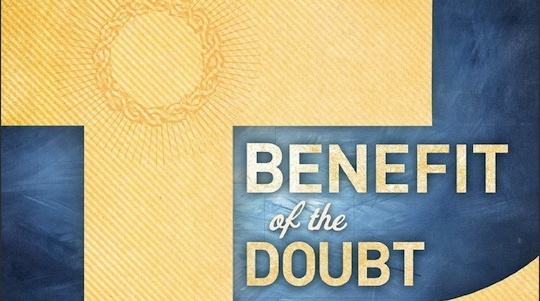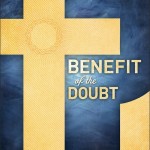We run our website the way we wished the whole internet worked: we provide high quality original content with no ads. We are funded solely by your direct support. Please consider supporting this project.
Quotes to Chew On: Conflicting Depictions of God
 “This is something like the way I believe we should respond when we encounter biblical narratives that depict God doing things we can’t imagine Christ doing. For example, I can’t for a moment imagine Jesus—the one who made refusing violence and loving enemies a condition for being considered a child of God—commanding anyone to mercilessly slaughter anyone, let alone an entire population that included women and infants. And yet, Yahweh is depicted as doing this very thing in a book that Jesus himself considered inspired, and thus a book that I, out of obedience to him, feel compelled to regard as inspired.”
“This is something like the way I believe we should respond when we encounter biblical narratives that depict God doing things we can’t imagine Christ doing. For example, I can’t for a moment imagine Jesus—the one who made refusing violence and loving enemies a condition for being considered a child of God—commanding anyone to mercilessly slaughter anyone, let alone an entire population that included women and infants. And yet, Yahweh is depicted as doing this very thing in a book that Jesus himself considered inspired, and thus a book that I, out of obedience to him, feel compelled to regard as inspired.”
“I submit it would be unfaithful to Christ and the relationship he has forged with us on the cross to allow this or any other narrative to call into question the loving character of God that he reveals. So too, it would be unfaithful for us to invest this or any similar narrative with the same authority we invest in Christ and to thereby conclude that Jesus only reveals part of God—as though there is a merciless violent streak in God that remains hidden behind the cross.”
“A more faithful response, I believe, is to instead assume that there must have been things going on behind the scenes that we are not privy to. And until we can ask him face to face, the faithful thing to do is to try and imagine what this “something else” might have been.”
Boyd, Gregory, Benefit of the Doubt: Breaking the Idol of Certainty, p.192, Baker, 2013
Category: General
Tags: Benefit of the Doubt, Cruciform Theology, Jesus, Quotes
Related Reading

Did God Give Violent Laws? A Response to Paul Copan (#13)
In his critique of Crucifixion of the Warrior God (CWG) at the Evangelical Theological Society annual meeting in November, Paul Copan takes issue with my contention that the violent dimension of OT laws reflects God accommodating the fallen and culturally conditioned perspectives of his people at this time. In my view, God was stooping to…

Rachel Held Evans Interviews Greg on Benefit of the Doubt
We shared an interview that Frank Viola did with Greg yesterday, and we’re thrilled to share an interview that Rachel Held Evans posted today. Rachel is very familiar with the resistance and criticism that comes when dearly held beliefs are challenged. We feel like she is a kindred spirit in this regard. We hope you’ll…

God’s Heart to Prevent Judgment
In Ezekiel we read a passage that depicts Yahweh as warning his people about their impending punishment by saying, “I will pour out my wrath on you and breathe out my fiery anger against you” (Ezek 21:31a). As we find in several other texts, Yahweh is here depicted as a ferocious fire-breathing dragon—a portrait that…

When God Endorsed Polygamy
We often find God acting as if he supports things we know, by other means, that he does not. For example, though his ideal was monogamy, it’s clear in the biblical narrative that, once God decided to permit men to acquire multiple wives and concubines, he was not above bearing the sin of his people…

Is Jesus Unique?
The Search for a Non-Unique Jesus Built into the naturalistic assumption that drives the liberal New Testament search for the “man behind the myth” is the notion that, whoever Jesus was, he cannot have been utterly unique. The laws that operate in the world today, including the laws of human behavior, have always operated. And…

5 Differences Between The Kingdom of God and the Kingdom of the World
Image by matthijs rouw via Flickr The kingdom of God looks and acts like Jesus Christ, like Calvary, like God’s eternal, triune love. It consists of people graciously embracing others and sacrificing themselves in service to others. It consists of people trusting and employing “power under” rather than “power over,” even when they, like Jesus, suffer because…
